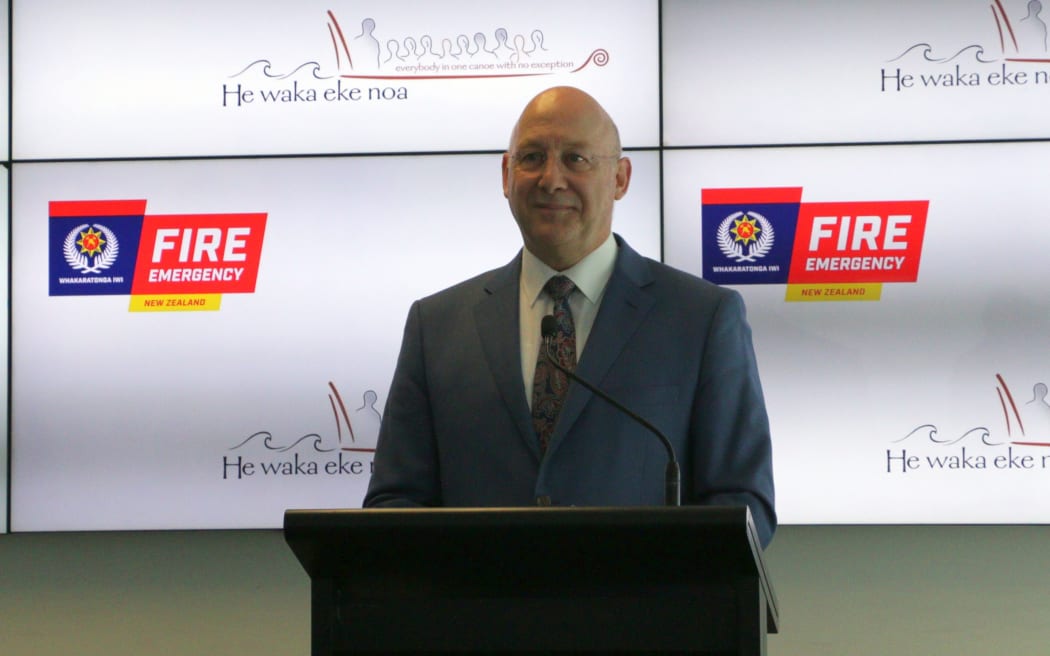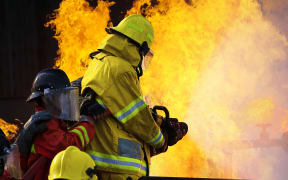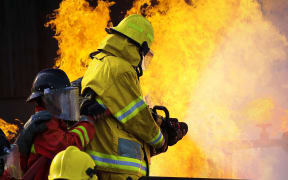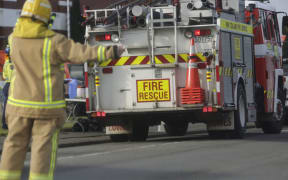The head of Fire and Emergency is vowing to stamp out bullying in the organisation, but says it could be more than the expected three years to change the culture.

Fire and Emergency chief executive Rhys Jones Photo: RNZ / Meriana Johnsen
The findings of an independent investigation this week revealed bullying and harassment were endemic in all Fire and Emergency workplaces throughout the country and at every level of the organisation.
Thirty-seven cases have been reported since last July but the investigator, retired judge Coral Shaw, found complaints were often downplayed or overlooked.
Fire and Emergency was formed in 2017 out of the amalgamation of the Fire Service and rural and territorial fire authorities.
Fire and Emergency chief executive Rhys Jones told Morning Report firefighters couldn't use the tough environment they work in as an excuse for bullying.
He said the so-called "hero culture" in the organisation would be reformed, but it would take time.
The review heard of cases where bullying behaviour has been overlooked, downplayed or excused because the perpetrator is perceived to be a "hero firefighter," an important manager, a long-service volunteer with deep connections into the local community, or a union member.
"It is a tough physical and mental environment and too many times people stray over that line to inappropriate behaviour," he said.
"They start self-regulating who's good enough to be in this particular team and that's wrong.
"There are ways of dealing with people who are not performing well, a board of action brings them up to speed... or, if they can't meet the standards, there are proper processes to remove them, not harassment and bullying. That has been the problem."
The organisation accepted all 33 recommendations, including the adoption of a Code of Behaviour following the report.
It will monitor and evaluate the implementation over the next three years.
Mr Jones acknowledged that racism and sexist behaviour had been part of the culture of the organisation and it was being addressed through creating a safe environment for people to bring complaints and educating staff on what was expected from them.
"I'd like to reassure the public that the professionalism of us engaging with the public in doing our job is not in question, it's our own behaviour and attitudes, and that's what we are determined to change," he said.
He admitted there had been a lack of respect for not only women, but also Māori, and that the organisation was responding to that through cultural engagement and putting appropriate people into positions of management.
"We are starting to change the culture... We know what we have to do over the next three years, but it will take longer."
United Fire Brigades' Association of New Zealand Chief executive Bill Butzbach said past behaviour would no longer be tolerated in the sector.
"It's fair to say the fire and emergency sector internationally is a raw environment and certainly people are pretty tough and I think there are times where their behaviour is unacceptable and may not even be recognised by the individuals... but here is the opportunity put a line in the sand and say we have one set of behaviours and values now and this is how we need to behave," Mr Butzbach said.
It was reported last December that there were 15 complaints of "inappropriate behaviour" upheld against Fire and Emergency staff in the Southland region.
An internal audit of the New Zealand Fire Service in 2016 found bullying and harassment were ongoing concerns.
The issue was also raised at all but one of 17 forums held in 2017 by women in Fire and Emergency New Zealand.
Almost half of people who responded to the survey (45 percent) reported witnessing and/or experiencing bullying or harassment in the organisation, and over half (53 percent) of those said they did not report it.
However, only 37 cases had been formally processed within the organisation since July 2017.




